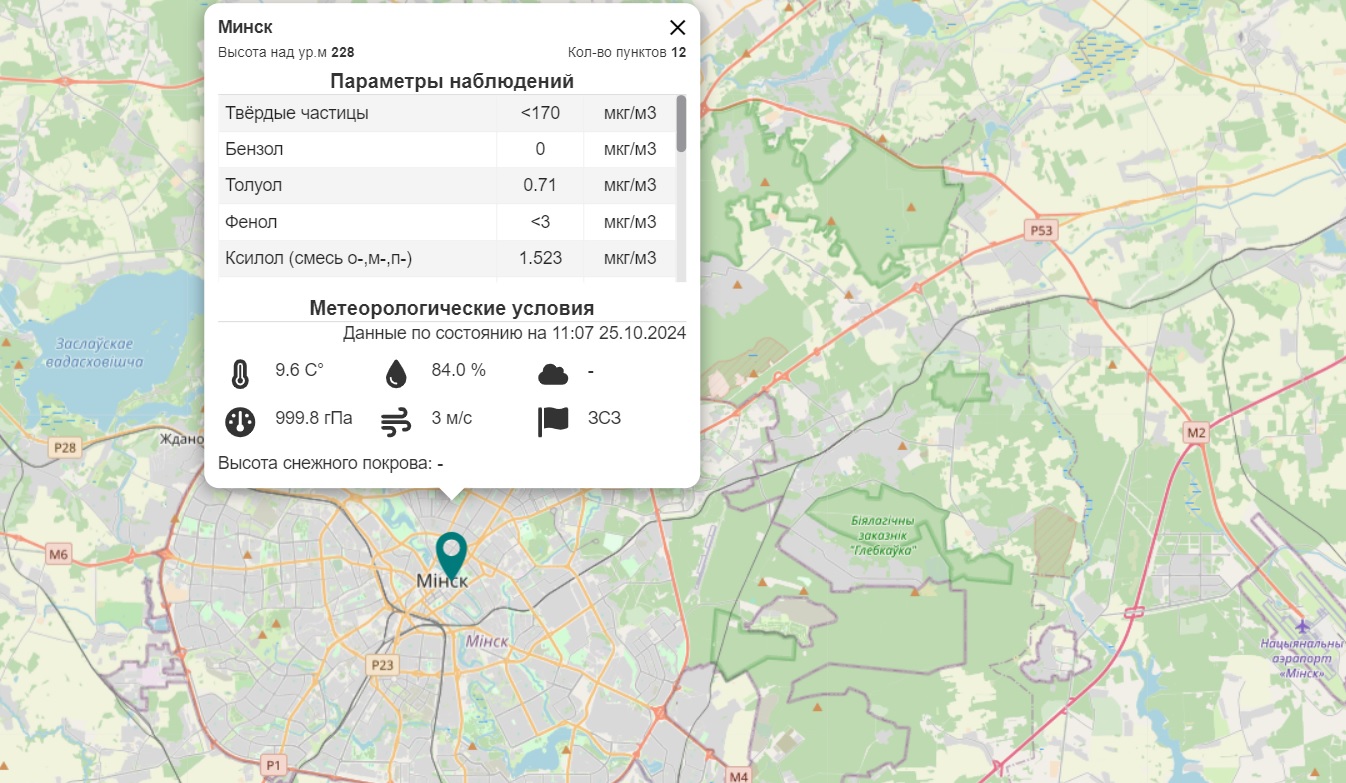The quality of the environment directly affects the quality of life and people’s health. Up-to-date data on air pollution allows for planning actions to reduce the impact of pollutants, choosing locations for mass events, and predicting changes in the ecological situation.
For these purposes, the data must meet at least two requirements: relevance and accuracy. To ensure such compliance, it is essential to have a system for collecting, storing, and visualizing information.
Epol Soft has developed the RISAMOS data collection system — an innovative tool that ensures the collection from sensors, processing, and storage of information about air quality, atmospheric precipitation, snow cover, and emissions from industrial enterprises.
Tasks and Goals of the System:
The RISAMOS data collection system aggregates information from monitoring points and automated control systems, allowing existing data resources to be combined into a single information system. As a result, government structures, research organizations, and businesses, as well as citizens, have access to accurate and up-to-date information about the state of the environment.
For its goals RISAMOS includes a wide range of functions, such as:
- Automatic and manual data collection from sensors.
- Data storage and editing.
- Processing, analysis, and visualization of indicators in various dimensions.
- Optimization of interaction with responsible parties and users.
Monitored indicators: Atmospheric air and precipitation, snow cover.
Currently, air quality observations cover 87% of the population in large and medium-sized cities of Belarus.
The monitoring is conducted in:
- 19 major settlements;
- The territory of the Mozyr industrial hub;
- The Berezina Biosphere Reserve.
Currently, 67 monitoring points are operational, where air samples are collected 3–4 times a day to determine 51 parameters. Additionally, 16 automatic stations continuously measure pollutant levels.
In urban air, concentrations of key pollutants such as:
- Particulate matter;
- Carbon monoxide;
- Nitrogen dioxide;
- Sulfur dioxide;
- A range of specific substances, including formaldehyde, ammonia, and hydrogen sulfide, are identified.
Benefits for Residents:
- Access to Current Information: Residents and visitors can obtain up-to-date data about air quality and weather conditions, enabling informed decision-making.
- Improvement of Quality of Life: Monitoring the state of the environment contributes to a better quality of life. Residents can learn about exceedances of permissible pollution levels and take measures to protect their health.
- Active Participation in Environmental Initiatives: The program allows citizens to engage in data-driven environmental initiatives, fostering greater public involvement in ecological issues.
Benefits for Authorities:
- Effective Resource Management: Consolidating data into a single information system enables government agencies to manage natural resources more effectively and respond to environmental threats.
- Informed Decision-Making: Authorities can make decisions based on the accurate and up-to-date information, which is critical in the context of climate change and industrial growth.
- Improved Interaction with the Public: The RISAMOS system not only collects data from sensors, but also alerts users about exceedances of pollutant thresholds via SMS, email, and messaging apps. This enhances communication between authorities and citizens, increasing trust and transparency.
- Data Export and International Cooperation: The software supports data export in the international format of the EMEP program, opening opportunities for collaboration with international organizations and knowledge exchange in the field of ecology.
Thus, RISAMOS is not only a tool for environmental monitoring, but also an important step toward improving the quality of life for residents and more effective management of natural resources.

